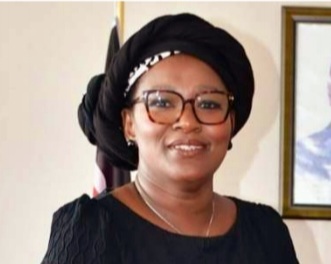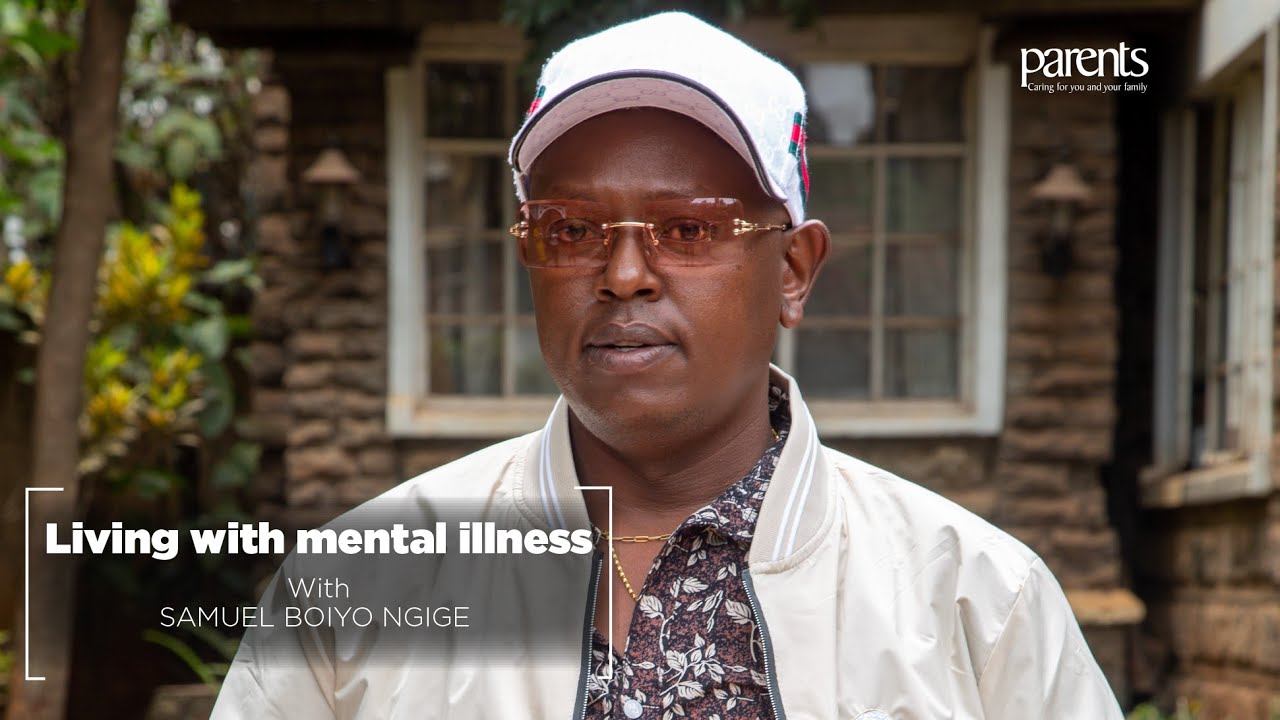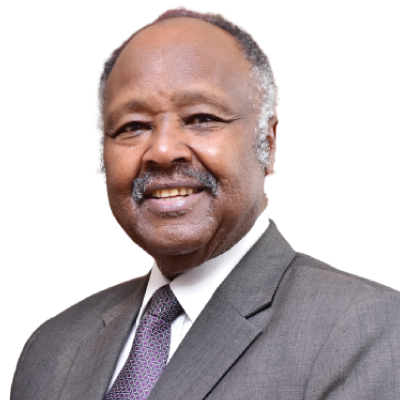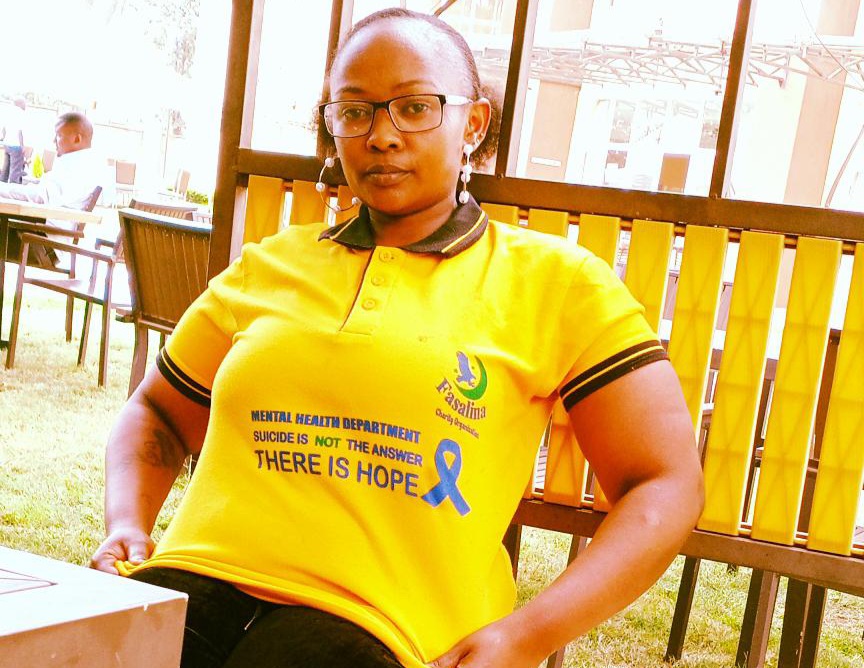Rachel Shebesh: Becoming a mental health advocate

When it comes to issues surrounding mental health, Hon. Rachel Shebesh knows exactly where the shoe pinches most having lived with bipolar disorder for most of her life. WATURI NGUYO had a chat with her on journey with mental illness both as a survivor and mental health awareness champion.
You have been vocal about mental health awareness, where did this Journey start?
My journey with mental health awareness started almost 35 years ago, and it was noticed by my husband. I had never known that there was something known as bipolar. What I knew, and everybody knew about me is that I was very babbly one minute and sad the next. My husband saw it as an issue when it started to affect relationships with people. He could see people wondering what was going on and be once told me. I think you’re bipolar. So, I like to emphasize, that I probably am lucky that my journey of self-awareness on mental illness started from a point of love because it came from my husband.
I’ve been on medication for long and I have been stabilized for a very long time. But even with medication, there is an issue of the psychological well-being in your state. My psychiatrist told me that I needed to deal with the issues that were predisposing me, So, he made me aware that mental illness is also genetically predisposed. And therefore, I went back to my conversation with my family. Our family is probably, one of the most open families on mental illness because we did realize that truly it’s genetic in my maternal side of the family. And since then, we’ve been able to identify those around us who have the same issues.
I always talk about my elder sister Betty who is my life coach. She discovered her issues early but jelled when we started this journey of being committed to surviving this mental illness. So, the issue of psychotherapy became very critical.
I resisted psychotherapy for a very long time because I felt like the medication was handling my mood swings. My real turning point was when I went into depression for over a year. It is an experience, I would not wish even on my worst enemy. It opened up my eyes to the need for psychotherapy, and dealing with issues. In mental illness we talk about triggers, the things that make your mental illness flair. I have so, many triggers and if I did not go through psychotherapy, I would not even have realised that fear is a trigger for me. I needed to be taken through overcoming that tngger because, if you don’t learn to deal with your psychological issues, you may be on medication for life, you may manage yourself for life, but you will not live a full life. I believe that I’m at the point where I’m living my life fully through medication, psychotherapy and self-awareness.
Why was it important to talk about. your journey openly despite the stigma surrounding mental illness?
One day in an address to the nation, the President acknowledged that mental illness was a big problem and the rates of suicide had reached crisis levels in the country. and he wanted a conversation around it. I made my decision there and then. I thought if the President can call it out, what about me? Somebody who works for him, who knows the biggest issue is around stigma and people being embarrassed to talk about it I said it’s about time. The other thing that inspired me to pursue mental health is young people. I have been directly affected by that issue of suicide around myself, my family, my friends, my children’s friends. et cetera and I thought it’s not just for me to remain silent. So, I may have been propelled by what the President said but I guess I was always ready to talk about it, which is why I started a YouTube channel
Of course, after my YouTube channel, if I was not mentally prepared, I may not have survived the comments. And you know in politics the immediate comment is that she’s a mad woman. But I was ready for it and a majority are not. Those who have mental illness and have survived, who might not be championing it right now, I do understand maybe they’ve not reached the level where I have because I have been through a long journey. But I still call upon anybody who can champion de stigmatization when dealing with mental illness,whether you are a survivor like myself, or you just want to champion it because you have encountered it through your family or friend, to do so.
How much progress has been made between now and when you received your diagnosis?
When I was first diagnosed and then I had to be hospitalized, I was a Member of Parliament. Do you know that the cover of the Members of Parliament, which is huge. probably the biggest in the country, had no cover for mental illness? So, when my doctor was to be paid, they did not know how to pay him. So, I had to walk into the office of the speaker at that time andtell him that my doctor was a psychiatrist. he’d not being paid. Then I asked him why that was the case? From there it became a conversation. That is how bad it was Moving on. NHIF was not covering mental illness. Because of being in government and having close relationships with my colleagues, we moved that conversation to NHIF.
County hospitals did not have a department for mental illness. Today, all 47 county referral hospitals have been allocated a psychiatrist. Then in parliament, through Senator Kasanga, though she’s not a survivor, the mental health bill was passed by parliament. She fought for it and brought MP’s on board and I will never thank her enough because the only way you can make an issue important is through legislation. We have deliberately engaged in changing the face of Mathare hospital to the point where they are thinking we changed the system; we’ve changed the way it is. But the name may still cause stigma. So, there is a conversation about changing the name, hot I can tell you that even as an institution, they have really progressed in every aspect. It is no longer a cage where you take your patient to be caged like an animal.
However, the elephant in the room is the cost of medication. Psychotropic medication is extremely expensive. The medicines that you take to balance the chemicals in your brain are really expensive and yet depending on how your mental illness has progressed, you need them.
Having been on this journey, you understand yourself better now. How are you taking care of yourself?
I have learned to be selfish because I was always a very giving person. I still am, but I over gave. One of the reasons for my bipolar is I always felt in my life. especially growing up, that as much as I gave, you needed to return to me. It killed me that nobody used to acknowledge me. The fact that I was able to dead with that is self-growth.
How I take care of myself is that I remind myself every time that the way I was made by God is perfect in his eyes and so I said if I’m perfect in God’s eyes, how do I make God proud of this perfect being? And I realized that first I was not giving God. enough time. So, I give God time on my own. Probably not in the conventional ways
Also, people think I am an extrovert but I am actually an introvert. I am comfortable in my silence and my space. Since I started my growth, I take so much time alone. Those around me know because they have been part of my journey. I am the kind of person who can be at a function that ends very well but I will immediately get into my car and leave when everybody else is going to celebrate.
I celebrate my successes with my God. I pat myself on the back, I don’t wait for people to pat my back anymore. I waited. for it so long, but it was eating away at me. So, how you take care of yourself is first through self-awareness, I can never emphasize more about self-awareness, and this is not only for people going through mental illness. Self-awareness, whichever way you do it, is the best gift you can give yourself.
How can the rest of society join in this conversation?
What can I say to other people who may not be in our journey…to understand our journey, love us, and realise that mental illness is a disease like any other. Someone with a mental illness, as mean as they sound at times, just cannot control it the way you cannot control diabetes or hypertension.
Every time I have an episode when I go back, I wonder, God why? I didn’t mean it: I didn’t want to do that but I did it and it hurt people. So, I wish Kenyans would just understand that this is a real issue and the person you see or recognize around it should not be the person you point at and all of you gang up against.
It is also not about witchcraft. It is a simple chemical imbalance in your brain that is the same chemical imbalance that causes all diseases, including cancer. Would you disown your child, your wife, your mother, or your father because they had cancer? Then don’t disown somebody who has a mental illness. That is my plea.
To those who are like me on this journey. we are together and it’s okay not to be okay. But you must seek out help. Be selfish for yourself. You may think it may be stupid to look out for help, but imagine there is somebody you will approach that will be the game-changer for you.
It can be a best friend, a teacher, a coworker, a pastor or even a stranger. The biggest disservice, a person with mental illness can do for themselves is not to be selfish enough to want to get well.







